Edit:I am trying to use Constrained Execution Regions as a new weapon against Abort(). I am still running test, I hope it work. Abort() is really a bad thing. I will report later.. If anyone has any argument against CER please note that.
I am having a problem about .NET memory leaking.
I have a project, quite complex, threads in threads in threads, makes it hard to debug.
I know Abort() is depreciated, but I have my reasons to use them:
My method is a long method, I/O, network related. There's no explicit time-consuming operation that I can put a flag inside. If I put flags everywhere the code will be a mess.
When needed, the thread has to be terminated at once, sooner is better. All the work inside is no longer needed.
When I run the program normally, by which threads finish their work and die naturally one by one, everything is ok (I have run my program for 2 years, no memory leaking).
But if I try to create new thread, Start() and Abort() them frequently (1-2 threads/second, just a bit faster than the case I don't abort()), the memory leaks.
And the more wired thing is that, after the operation is finished, the memory occupied will stay high for a few time, like minutes or 10 minutes, but it will finally return to normal level, like nothing happened.
In debug mode, I can see no active thread, but memory leaked.
So I used .NET memory profiler to trace. Most instances occupied the memory are many byte[] referenced by MemoryStream.
Yes, I do use MemoryStream, but ALL of my MemoryStreams are inside using blocks, no exception. Everything should be in using block correctly.
As far as I know, Thread.Abort() is throwing an exception to force it to close, but as I confirmed in debug mode, all the threads are closed expectedly. Why there are still reference? Why the memory is released after some time? (But still much longer than the situation when I don't abort the thread and let it finish the work.)
IMO using blocks can guarantee that even the ThreadAbortException is thrown inside the Dispose() can be executed correctly.
Edit:
public static byte[] Recover(byte[] png)
{
using (MemoryStream pngStream = new MemoryStream(png))
{
using (System.Drawing.Image image = System.Drawing.Image.FromStream(pngStream))
{
using (MemoryStream bmpStream = new MemoryStream())
{
image.Save(bmpStream, System.Drawing.Imaging.ImageFormat.Bmp);
bmpStream.Seek(0, System.IO.SeekOrigin.Begin);
byte[] BMP = new byte[bmpStream.Length];
bmpStream.Read(BMP, 0, (int)bmpStream.Length);
return BMP;
}
}
}
}
public xxxxMission(byte[] png, Server server, int no) //constructor
{
byte[] bmp = xxxBMP.Recover(png); //png is generated by getBlankBMP();
//....
}

